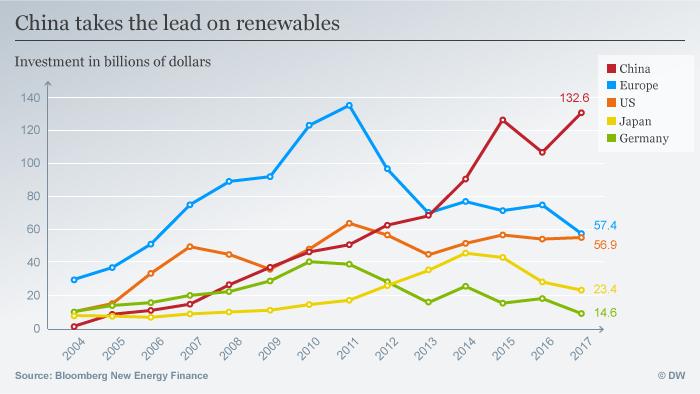
Green Energy & National Security: A Fresh Perspective
The threat of a global environmental catastrophe has not compelled the United States into meaningful environmental action. Perhaps fear of the American decline will.
This insight was a finalist in our fall blog competition.
Assuming that democratic countries will transition to clean energy out of “goodwill” or a collective democratic desire to “save the world” is a naive pipe dream. In the United States, any progressive attempt to do so has failed because of two insurmountable reasons. Firstly, large oil companies have bought and secured the loyalties of many members of both parties—these politicians dare not bite the hands that feed them. Secondly, desperate attempts to grasp median voters have led even the supposedly left-leaning Democrats to exclaim that they support fracking proudly—one of the most devastating human activities for the environment.
At this complicated nexus, the U.S. needs renewed motivation—essentially a fresh marketing campaign—toward a sustainable future. Proponents of a “Green New Deal” have already attempted this by presenting the energy transition as one imbued with economic opportunities, but this has proved fallible in the face of the threat of massive short-term economic consequences, which right-wing politicians have duly capitalized upon. Rather, there needs to be a new fear introduced into the mainstream political paradigm: the threat of national insecurity.
National security concerns have propelled Americans into action for decades—providing politicians, the Pentagon, and the public justification to fight wars in far-off countries, support state-sanctioned spying, and the like. Concerning energy policy, American policymakers and citizens need to recognize that it is fundamentally an issue of national security.
To understand why this is, it is important to turn our attention to China. Beijing has already made highly consequential strides in sustainable energy. Beyond exhibiting an unprecedented willingness to achieve carbon neutrality in the next four decades, China is already by many accounts the world’s leader in green energy technologies. Beijing is the world’s largest investor in and producer of green energy: boasting the world’s highest solar and wind power generation levels. Moreover, Chinese companies are already extremely well-positioned to dominate the global electric-vehicle industry—the “China Racing” Formula-E (electric) team’s victory in the competition’s inaugural season is a testament to their technological prowess and potential.

Why is this important to American national security? Simply because the global transition to renewable energy is inevitable. There will be an inflection point, either because accessing affordable oil from an unstable Middle East will become increasingly difficult, or because renewable energy technologies will become too competitive for hydrocarbons to compete with. More likely, however, this will emerge from growing public discontent over the environmental consequences of climate change: air-pollution, hurricanes, etc.
At that point, lagging behind China in the energy space would be perilous to the future of American hegemony. China is poised to become the “Saudi Arabia of Renewables”—leveraging the network of energy-based alliances it has fostered through its Belt and Road Initiative to become the world’s preeminent supplier of renewables and create a world dependent on Chinese energy technology. In short, the Middle Kingdom will resurge.
Where will this leave the United States? With a faltering level of global influence as the rest of the world desperately scrambles to power its future sustainably—or worse, the U.S. could find itself dependent on Chinese energy technology.
This dynamic harks back to the fall of the British Empire: Whitehall was unable to secure independent access to oil at the dawn of the Age of Coal, was thus barely able to fuel its military and economic powerhouse, and nearly went bankrupt in obtaining oil from the world’s next hegemon—the United States. If we do not learn from history, we will repeat it. The end of the world has not compelled Americans into environmental action, but maybe the end of the American Empire will.
Moiz Jehangir
Moiz Ali Jehangir is an undergraduate student studying international relations and economic policy at the College of Arts and Sciences.

